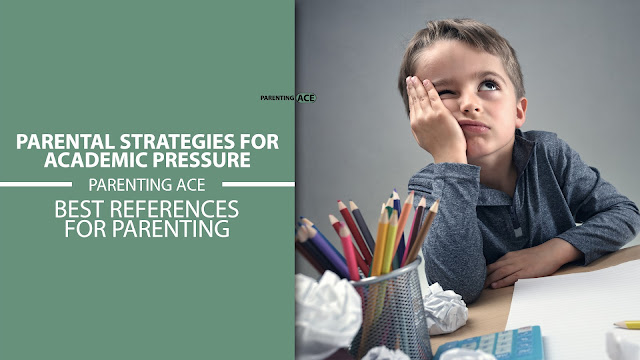Navigating Academic Pressure: Strategies for Parents to Support Their Children
Academic pressure is a ubiquitous aspect of modern education, presenting a significant challenge for both parents and children alike. In this blog post, we delve into the complexities of addressing academic pressure and expectations, exploring strategies for parents to support their children's well-being while fostering academic success. From promoting open communication to encouraging resilience, join us as we navigate the delicate balance between academic achievement and mental wellness in today's competitive educational landscape.
 |
| Parental Strategies for Academic Pressure |
How Do Parents Address Academic Pressure And Expectations?
In today's competitive world, academic pressure and expectations weigh heavily on both parents and children. As caregivers, parents play a crucial role in helping their children navigate these challenges while maintaining their mental and emotional well-being. Understanding how to effectively address academic pressure and expectations is essential for fostering a healthy and supportive learning environment. In this article, we explore strategies for parents to support their children in handling academic pressure and managing expectations.
Understanding Academic Pressure
Academic pressure refers to the stress and anxiety experienced by students due to the demands of academic performance, including achieving high grades, meeting expectations, and excelling in various subjects. This pressure can stem from internal sources such as personal goals or external sources like parental or societal expectations. While a certain level of pressure can motivate students to strive for excellence, excessive pressure can lead to negative consequences such as burnout, anxiety disorders, and depression.
Communication and Validation
One of the most critical ways parents can support their children in dealing with academic pressure is through open and empathetic communication. Encourage your child to express their feelings and concerns about academic expectations without fear of judgment. Validate their emotions and reassure them that it's okay to feel overwhelmed at times. By creating a safe space for open dialogue, parents can help alleviate some of the stress associated with academic pressure.
Setting Realistic Expectations
Parents often have high expectations for their children's academic performance, driven by a desire for success and a better future. While it's natural to want the best for your child, setting unrealistic expectations can add unnecessary pressure. Instead, focus on setting realistic and achievable goals that consider your child's abilities, interests, and individual learning pace. Celebrate their progress and efforts, regardless of whether they meet specific academic benchmarks.
Promoting a Balanced Lifestyle
Encourage your child to maintain a balanced lifestyle that prioritizes both academic success and personal well-being. Help them establish healthy habits such as regular exercise, sufficient sleep, and relaxation techniques to manage stress effectively. Emphasize the importance of taking breaks, pursuing hobbies, and spending quality time with family and friends. By fostering a balanced approach to life, parents can mitigate the negative effects of academic pressure and promote overall well-being.
Encouraging Perseverance and Resilience
Teach your child the value of perseverance and resilience in the face of academic challenges. Encourage them to view setbacks as opportunities for growth and learning rather than failures. Emphasize the importance of effort, resilience, and problem-solving skills over mere academic achievement. By instilling a growth mindset, parents can help their children develop the confidence and resilience needed to overcome obstacles and thrive academically.
Addressing academic pressure and expectations requires a collaborative effort between parents, children, and educators. By fostering open communication, setting realistic expectations, promoting a balanced lifestyle, and encouraging perseverance, parents can support their children in navigating the complexities of academic life. Ultimately, the goal is not just academic success but also the holistic development of children who are resilient, confident, and equipped to face life's challenges with courage and determination.



Comments
Post a Comment